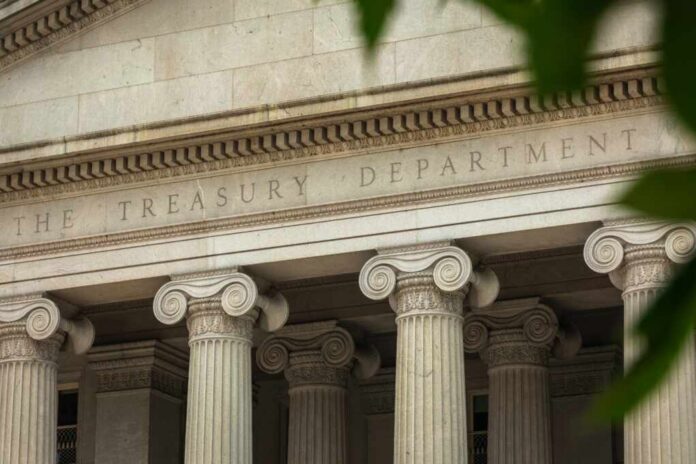
Chinese money laundering networks are exploiting gaps in the U.S. financial system to fuel the fentanyl crisis, prompting urgent warnings to American banks as the opioid epidemic worsens.
Story Snapshot
- The Treasury Department directs U.S. banks to intensify monitoring of Chinese money laundering networks tied to fentanyl trafficking.
- Chinese criminal groups collaborate with Mexican cartels to launder billions in drug proceeds through American institutions.
- Heightened scrutiny could disrupt cartel operations but also increase compliance burdens for U.S. banks.
- The crisis underscores the need for stronger financial intelligence and cross-border enforcement to protect American communities.
Treasury Department Targets Chinese Money Laundering Networks
On August 28, 2025, the U.S. Treasury Department and its Financial Crimes Enforcement Network (FinCEN) issued a new advisory, calling on American financial institutions to increase vigilance against suspected Chinese money laundering networks. These networks, known as CMLNs, have been identified as a critical link in the movement of fentanyl trafficking proceeds for Mexican drug cartels. The advisory provides updated red flag indicators and financial typologies, signaling the federal government’s intensified focus on tracking and disrupting these illicit flows.
The Treasury Department wants U.S. banks to monitor for suspected Chinese money laundering networkshttps://t.co/gjpL7K1nBn pic.twitter.com/QhlCXgCRjv
— The Washington Times (@WashTimes) August 28, 2025
The Treasury’s move follows years of mounting evidence that Chinese criminal groups and Mexican cartels work in tandem to exploit the openness of the U.S. financial system. CMLNs use underground banking, trade-based laundering, and complex remittance schemes to move drug profits out of the country while bypassing both American and Chinese authorities. This collaboration not only bankrolls further cartel activity but also perpetuates the opioid crisis that devastates families and communities across the United States.
Watch:
How the Fentanyl Crisis Became a National Security Threat
The roots of this crisis run deep, with fentanyl—an extremely potent synthetic opioid—now the leading cause of overdose deaths in the U.S. Mexican cartels, particularly the Sinaloa Cartel, import precursor chemicals from China, produce fentanyl, and distribute it across American cities. The resulting profits, often totaling billions, are funneled back through Chinese underground banking systems that circumvent currency controls and evade law enforcement detection. Such networks have grown increasingly sophisticated, leveraging unwitting intermediaries and exploiting weaknesses in anti-money laundering (AML) compliance across major banks.
Earlier regulatory efforts by FinCEN in 2019 and 2024 highlighted emerging typologies and the need for stricter AML protocols. However, the scale of the current challenge has prompted a new sense of urgency. The Treasury warns that money launderers constantly adapt, pushing illicit finance into new channels and threatening to undermine the rule of law.
Impact on U.S. Banks, Law Enforcement, and Communities
For American banks, the advisory means stricter compliance burdens and a need for enhanced reporting and due diligence. Institutions must identify complex laundering patterns and report suspicious activity swiftly, or risk regulatory penalties. While these measures could disrupt some cartel operations, criminal networks are quick to adjust, requiring constant vigilance and international cooperation. Law enforcement agencies, from the FBI to the DEA, rely heavily on financial intelligence to track and prosecute offenders, but the global and clandestine nature of CMLNs poses ongoing obstacles.
The broader impact is felt most acutely by U.S. families and communities, who continue to suffer the devastating consequences of the fentanyl epidemic. As illegitimate funds distort the economy and fuel further crime, the political stakes have risen. Congress has introduced measures like the Stop Fentanyl Money Laundering Act, aiming to bolster enforcement and close loopholes.
Sources:
Treasury Department urges U.S. banks to monitor suspected Chinese money laundering networks fueling fentanyl crisis (ABC News)
Treasury Department Press Release: New Advisory Issued to U.S. Banks (U.S. Treasury)
Congressional Report: Stop Fentanyl Money Laundering Act of 2025
FinCEN Financial Trend Analysis: Fentanyl-Related Money Laundering
FinCEN Advisory: Chinese Money Laundering Networks (CMLNs) and Fentanyl

























